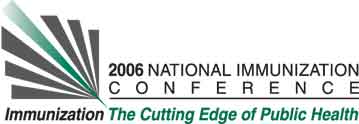Teresa Phillips, Immunizations, Central District Health Department, 707 N. Armstrong Place, Boise, ID, USA,
Pamela Strohfus, Department of Nursing, Boise State University, 1910 University Drive, Boise, ID, USA, and
Cindy L. Howarth, Office of Immunizations, Children's Services, & International Health, Central District Health Department, 707 N. Armstrong Place, Boise, ID, USA.
Learning Objectives for this Presentation:
By the end of this program the participants will be able to:
1. Understand a telephone consultation service on safe and effective administration of immunizations.
2. Identify patient safety concerns with immunization delivery.
3. Establish a system to report potential errors.
Background:
Immunizations have proven to be safe and effective for eradicating preventable diseases yet thousands of children and adults continue to develop vaccine preventable diseases due to inadequate immunizations. The Centers for Disease Control and Prevention (CDC) regulates the administration of immunizations by requiring all providers to abide by the Health Employer Data Information Set (HEDIS). These guidelines change frequently based on evidence based research. The guidelines can be confusing because of the numerous immunizations, which require strict understanding and maintenance of immunization programs by local medical and health offices.
Setting:
Central District Health Department, Boise, Idaho and surrounding medical offices, schools, child care facilities, and state health department.
Population:
Health care providers and staff who provide immunizations to children and adolescents in Southwestern Idaho.
Project Description:
An educational telephone assistance program was started in April of 2005 by the Central District Health Department of Idaho. Health care providers and staff utilize this resource to provide education on safe and effective administration of immunizations.
Results/Lessons Learned:
This telephone resource increases education regarding safe and effective administration of immunizations thereby increasing patient safety. Health care providers, staff, and school nurses are calling for information. These calls are beneficial in increasing education and preventing errors in immunization delivery. The cost of implementation and running this program pales in comparison to the treatment of disease and illness. Reducing errors, increasing patient safety, and providing supportive non-confrontational education are outcomes that have improved southern Idaho's practice patterns and childhood immunization coverage.
See more of Posters
See more of The 40th National Immunization Conference (NIC)

